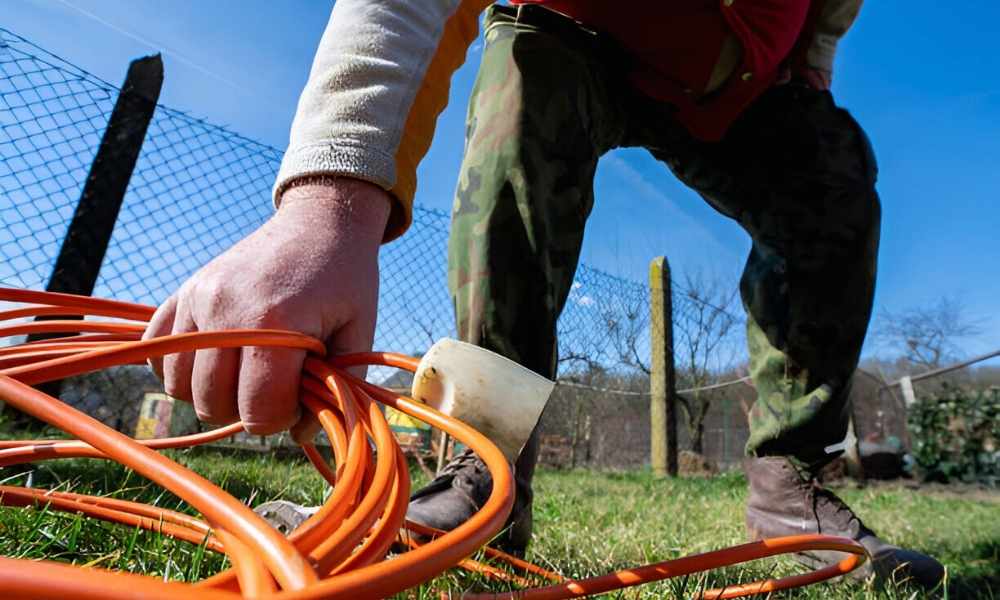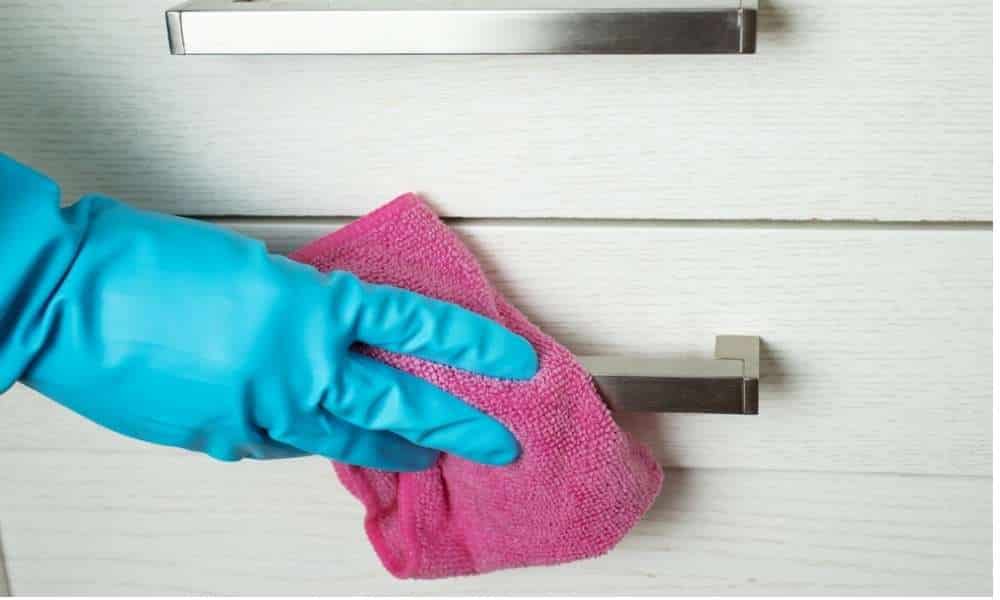Safety is always your number one priority when you’re working with extension cords outdoors. With a proper outdoor extension cord, You can save yourself from electrical dangers like electric shocks, fires, and breaks to your tools and appliances. But is your cord rated for use outdoors? This tutorial will teach you how to tell If extension Cord Is Outdoor.
The Importance of Choosing the Correct Outdoor Extension Cord
The wrong type of extension cord can also cause serious injury when you use it outdoors. A cord not intended for outdoor use can quickly lose its sturdiness under extreme conditions such as rain, snow, and strong sunlight. An outdoor extension cord is designed to survive these conditions, allowing you to run your tools, lights, and appliances without risk.
01. Look for Outdoor Use Markings on the Label
The first step in identifying the right cord for outdoor conditions is to check the label or packaging. Manufacturers mark the intended use of the cord, so if it’s designed for outdoor environments, it will be specified on the packaging. Look for labels that say:
- “For Outdoor Use”
- “Weatherproof”
- “UV Resistant”
- “Waterproof”
The extension cord is probably for indoor usage if it doesn’t say so. Indoor extension cords lack the heavy-duty protection required to withstand the elements.
02. Check the Cord’s Material and Jacket Type
The material of the cord’s insulation plays A crucial role in determining whether it is safe For use outside. It typically features thick, durable jackets made from materials like rubber, vinyl, Or thermoplastic elastomer (TPE). These materials are resistant To:
- UV rays
- Moisture and rain
- Temperature fluctuations
03. Voltage and Power Rating
Outdoor cords usually come with a higher voltage rating than indoor ones. This is particularly true when you’re working with power tools, outdoor lights, or lawnmowers. Make sure the extension cord’s voltage rating is equal to or greater than your devices’ power requirements.
Cords for use indoors don’t have high-voltage ratings, so they can’t power very powerful outdoor equipment. When you’re using an indoor cord outdoors, it may overheat or ignite.
04. Gauge of the Cord (Thickness)
Extension cords Are available in various gauges that indicate the diameter Of the wire residing in the cord. The lower the AWG (American Wire Gauge) number, the heavier the cord. The thicker cords provide greater power without overheating and are perfect for use outdoors.
You’ll want cords with a 12 AWG or 14 AWG rating for any outdoor use that calls for significant power. These cords are built To handle higher currents, Making them ideal for power tools Or large outdoor devices. Use shorter, AWG number-restricted cords for low-power indoor applications.
05. Grounded and Three-Pronged Plugs
Using electrical devices outdoors is a matter of safety. Grounded extension cords come with a third prong on the plug, giving it extra security by grounding any current flowing. A three-pronged plug is a common feature on most outdoor extension cords and prevents shocks by feeding unneeded electricity into the ground.
You must always ensure the extension cord has a three-pronged plug if you are using it outdoors, particularly for power tools or appliances.
06. Color of the Cord for Visibility
Even though the color of the extension cord isn’t a sign of whether or not the extension cord will be safe for outdoor use, extension cords that are yellow, orange, or green are commonly rated for outdoor use. These colors provide better visibility to avoid trip hazards and can also signify that the cord is outdoor.
07. Length and Power Requirements
Your extension cord should be appropriate for the distance between your power source and your outdoor appliances or tools. Extension cords that are too long can lose their charge and create a power issue, particularly for high-powered outdoor devices.
To use for heavy-duty tasks, consider a shorter, thicker cord that can support the electrical current without dropping power over distances. Make sure to also make sure that the cord can support the power of your devices. An unpowered cord could get overheated and catch fire.
Extra Tips for Using Extension Cords Outdoors
- Store cords indoors: Every time you finish a session, don’t forget to bring in your outdoor extension cords and place them in a shed to shield them from urban hazards and increase their lifespan.
- Avoid overloading: As for outdoors, be wise and don’t connect too many devices to one extension cord. Overloading the cord inadvertently can cause it to overheat and become a fire hazard.
- Use weather-resistant covers: Protecting electrical outlets from the intrusion of water by using a weatherproof cover is a very good practice as opposed to simply leaving a cord outside for an extended period.
- Inspect before each use: In turn, all damage sustained as a result of the trip inside the container has to be monitored for or the item cannot be used unless it is considered secure. If the cord is bare and there are cuts, you should replace it immediately.
Conclusion
Choosing the correct outdoor extension cord is vital to your safety. Pay attention to the outdoor-use instructions on the label, look at the fabric and jacket, the voltage rating, and make sure that the cord gauge is sized for your load. The three-pronged plug and protection against UV and moisture are among the features that will help secure you and your hardware.
By following these tips, you’ll know which extension cord to invest in for your home or backyard, ensuring that you’re getting the power you need for everything from gardening tools to Christmas lights in safety and comfort.
Frequently Asked Question
How can I tell if an extension cord is safe for outdoor use?
Check for specific markings that say the extension cord is intended for use outdoors. It should read things such as “weather-resistant”, “UV-resistant”, or “outdoor use”. Check also for durable, thick exterior insulation (rubber or vinyl) resistant to water, sun, and high temperatures.
What is the difference between indoor and outdoor extension cords?
Outdoor extension cords handle harsh weather conditions, including moisture, UV rays, and extreme temperatures. They feature thicker, more durable jackets and support higher power usage than indoor extension cords, which suit dry, controlled environments.
Can I use an indoor extension cord outside?
No, you cannot use an indoor extension cord outside. Indoors cords don’t properly insulate Or resist weather conditions such As moisture, UV radiation, and temperature. Use an outdoor cord to avoid electrical hazards.
What gauge extension cord is best for outdoor use?
For outdoor tasks that require high power, Choose an extension cord with A lower AWG (American Wire Gauge) rating, such as 12 AWG or 14 AWG. Thicker cords handle the electrical load better, Preventing overheating And protecting your equipment from damage.
Can I leave my extension cord outside?
You can use an outdoor-rated extension cord for short-term outdoor work, but store it indoors if not in use. The materials of the cord will lose their properties over time, even when you put it in the outdoor area. Make sure to keep the cord in a dry place when not used to prolong its life.





